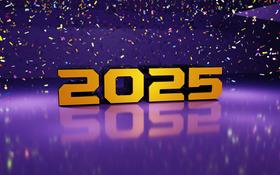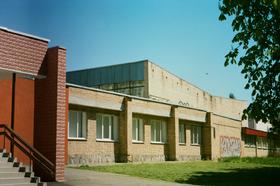For the 2025-26 school year, there are 7 public preschools serving 3,231 students in 50613, IA.
The top ranked public preschools in 50613, IA are Bess Streeter Aldrich Elementary School, Helen A Hansen Elementary School and Southdale Elementary School. Overall testing rank is based on a school's combined math and reading proficiency test score ranking.
ºÚÁÏÍø¹ÙÍø preschools in zipcode 50613 have an average math proficiency score of 81% (versus the Iowa public pre school average of 73%), and reading proficiency score of 82% (versus the 69% statewide average). Pre schools in 50613, IA have an average ranking of 8/10, which is in the top 30% of Iowa public pre schools.
Minority enrollment is 19% of the student body (majority Black and Asian), which is less than the Iowa public preschool average of 27% (majority Hispanic).
Best 50613, IA ºÚÁÏÍø¹ÙÍø Preschools (2025-26)
School
(Math and Reading Proficiency)
(Math and Reading Proficiency)
Location
Quick Facts
Rank: #11.
Bess Streeter Aldrich Elementary School
(Math: 89% | Reading: 92%)
Rank:
Rank:
10/
Top 5%10
2526 Ashworth Drive
Cedar Falls, IA 50613
(319) 553-2901
Cedar Falls, IA 50613
(319) 553-2901
Gr: PK-6 | 475 students Student-teacher ratio: 17:1 Minority enrollment: 12%
Rank: #22.
Helen A Hansen Elementary School
(Math: 88% | Reading: 88%)
Rank:
Rank:
10/
Top 5%10
616 Holmes Dr
Cedar Falls, IA 50613
(319) 553-2775
Cedar Falls, IA 50613
(319) 553-2775
Gr: PK-6 | 565 students Student-teacher ratio: 17:1 Minority enrollment: 17%
Rank: #33.
Southdale Elementary School
(Math: 84% | Reading: 90%)
Rank:
Rank:
10/
Top 10%10
627 Orchard Dr
Cedar Falls, IA 50613
(319) 553-2900
Cedar Falls, IA 50613
(319) 553-2900
Gr: PK-6 | 562 students Student-teacher ratio: 15:1 Minority enrollment: 20%
Rank: #44.
Orchard Hill Elementary School
(Math: 77% | Reading: 74%)
Rank:
Rank:
7/
Top 50%10
3909 Rownd St
Cedar Falls, IA 50613
(319) 553-2465
Cedar Falls, IA 50613
(319) 553-2465
Gr: PK-6 | 452 students Student-teacher ratio: 13:1 Minority enrollment: 24%
Rank: #55.
North Cedar Elementary School
(Math: 70-74% | Reading: 75-79%)
Rank:
Rank:
7/
Top 50%10
2419 Fern Ave
Cedar Falls, IA 50613
(319) 553-2810
Cedar Falls, IA 50613
(319) 553-2810
Gr: PK-6 | 297 students Student-teacher ratio: 14:1 Minority enrollment: 22%
Rank: #66.
Cedar Heights Elementary School
(Math: 75% | Reading: 75%)
Rank:
Rank:
6/
Top 50%10
2417 Rainbow Dr
Cedar Falls, IA 50613
(319) 553-2855
Cedar Falls, IA 50613
(319) 553-2855
Gr: PK-6 | 432 students Student-teacher ratio: 12:1 Minority enrollment: 19%
Rank: #77.
Lincoln Elementary School
(Math: 74% | Reading: 74%)
Rank:
Rank:
6/
Top 50%10
321 8th Street
Cedar Falls, IA 50613
(319) 553-2950
Cedar Falls, IA 50613
(319) 553-2950
Gr: PK-6 | 448 students Student-teacher ratio: 14:1 Minority enrollment: 20%
50613, Iowa ºÚÁÏÍø¹ÙÍø Schools (Closed)
School
Location
Quick Facts
Cedar Falls Alternative High School (Closed 2014)
Alternative School
3809 Cedar Heights Dr
Cedar Falls, IA 50613
(319) 553-2445
Cedar Falls, IA 50613
(319) 553-2445
Gr: 9-12 | 34 students Student-teacher ratio: 17:1 Minority enrollment: 9%
1002 W 1st St
Cedar Falls, IA 50613
(319) 553-2439
Cedar Falls, IA 50613
(319) 553-2439
Gr: K-12 | 44 students Minority enrollment: 25%
River Hills (Closed 2015)
Special Education School
2700 Grand Blvd
Cedar Falls, IA 50613
(319) 268-7775
Cedar Falls, IA 50613
(319) 268-7775
Gr: PK-12 | 117 students Student-teacher ratio: 4:1 Minority enrollment: 15%
Frequently Asked Questions
What are the top ranked public preschools in 50613, IA?
The top ranked public preschools in 50613, IA include Bess Streeter Aldrich Elementary School, Helen A Hansen Elementary School and Southdale Elementary School.
How many public preschools are located in 50613?
7 public preschools are located in 50613.
What is the racial composition of students in 50613?
50613 public preschools minority enrollment is 19% of the student body (majority Black and Asian), which is less than the Iowa public preschools average of 27% (majority Hispanic).
Recent Articles

Texas Schools Enrollment Trends & Policy in 2025
Latest data and policy changes on Texas public school enrollment growth, funding, and virtual education in 2025.

Financial Aid & Hidden Costs in ºÚÁÏÍø¹ÙÍø Schools
Learn about financial aid and hidden costs in public schools. Discover what parents should budget for beyond tuition-free education.

NYC Schools Still Most Segregated in 2025
Despite reforms, New York City schools remain the most segregated in the U.S. in 2025. Here’s what parents and educators need to know.
